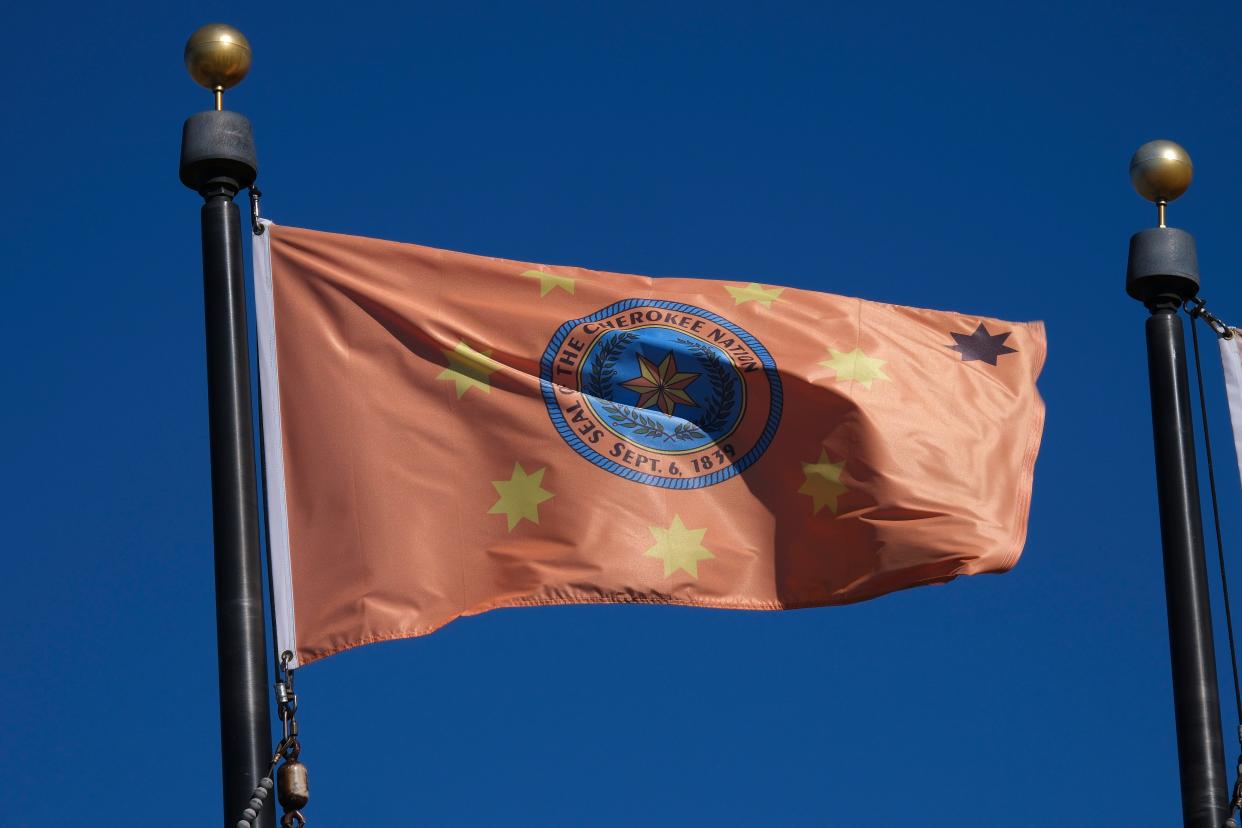Oklahoma Gov. Kevin Stitt signs compact with Cherokee Nation, state's largest tribe

- Oops!Something went wrong.Please try again later.
The Cherokee Nation tribal council will vote Monday whether to approve a new tobacco tax compact with the state of Oklahoma. Gov. Kevin Stitt already has signed off on the revenue-sharing deal.
The compact stands to become the seventh state-tribal agreement successfully negotiated by the governor’s office since January, and it will likely be the biggest. The Cherokee Nation, based in Tahlequah, has more than 450,000 citizens and is the largest tribe in the United States.
The pending agreement marks a sharp turn from last spring, when Stitt — a Cherokee citizen himself — repeatedly criticized Cherokee leaders for working with state lawmakers to extend tobacco tax compacts without him.
The debate over the future of state-tribal tax compacts was one of the most heated issues at the Capitol last year. But the governor’s recent deal-making has quieted some of his loudest critics, who had faulted him for failing to negotiate with tribal leaders.
More: Everything we know about Oklahoma's new compacts with tribes
Abegail Cave, a spokesperson for Stitt, confirmed he signed off on the Cherokee compact on Feb. 26. She declined further comment until the deal takes effect.
In a statement, Cherokee Nation Attorney General Chad Harsha described the agreement as “very similar” to the compact it is on track to replace.
But, like other recent tobacco tax deals signed by Stitt, the compact applies only to specific types of tribal land, not to entire tribal reservations. The governor had objected to renewing any tobacco tax compacts without making that change in light of the growing legal recognition of tribal reservations in Oklahoma. The Cherokee reservation covers all or parts of 14 counties in the northeast part of the state. The compact terms are more limited.
“The new compact jurisdiction applies to retailers operating on trust and restricted property, which includes all facilities licensed and operated by the Cherokee Nation,” Harsha said in statement.
Under the deal, the state and tribe will continue to equally split the tax money collected from tobacco sold by the tribe or tribally licensed retailers.
The governor recently signed other tobacco tax compacts with the Apache, Chickasaw, Citizen Potawatomi and Wyandotte nations, as well as the Wichita and Affiliated Tribes. He also agreed to re-up the state’s car tag agreement with the Chickasaw Nation.
More: Gov. Stitt says new compact guarantees access to tribal tag data. But the state already had the data
Dozens of agreements with other tribes remain up for renewal or stand to expire at the end of the year. Some had already expired, but the Legislature voted in July to extend all tobacco tax and car tag deals through 2024.
Stitt challenged the renewals as illegal and sued to stop them from taking effect at the start of this year. The state Supreme Court heard arguments in December but has not yet ruled in the case.
Molly Young covers Indigenous affairs. Reach her at mollyyoung@gannett.com or 405-347-3534.
This article originally appeared on Oklahoman: Oklahoma's governor signs compact with tribe after months of controversy

